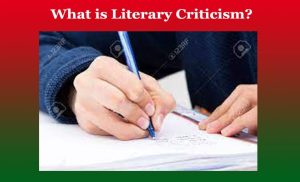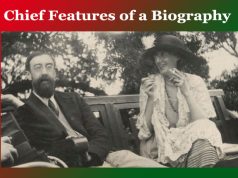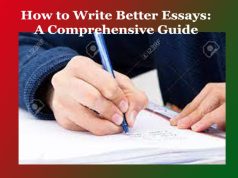What is Literary Criticism?
What is Literary Criticism?
Introduction:
Literary criticism is the evaluation, interpretation, and analysis of literature, including novels, plays, poems, and other forms of written expression. It aims to explore the meaning, structure, and artistic qualities of a literary work, providing readers with a deeper understanding and appreciation of the text. When it comes to poetry, criticism becomes a delicate art, requiring a thoughtful and nuanced approach. In this article, we will explore the basics of literary criticism and delve into specific techniques for critiquing poetry.
Literary Criticism Basics
Understanding the Context:
Before delving into the critique, it’s essential to understand the context of the poem. Consider the historical, cultural, and social background that influenced the poet. This context can significantly impact the interpretation of the poem’s themes and messages.
Analysis of Elements:
Literary works are comprised of various elements, such as plot, characters, setting, and style. In poetry, pay special attention to elements like rhyme, meter, imagery, symbolism, and language. These components contribute to the overall impact and meaning of the poem.
Interpretation:
Literary critics often aim to interpret the meaning of a text. This involves identifying themes, symbols, and metaphors, and exploring how they contribute to the overall message. Consider the emotions and ideas the poet is trying to convey.
Critiquing Poetry
Read Carefully:
Begin by reading the poem carefully and multiple times. Take note of your initial reactions and emotions. Pay attention to the tone, rhythm, and language choices. A deep understanding of the poem is crucial for an effective critique.
Examine Structure and Form:
Poetry comes in various forms, such as sonnets, haikus, free verse, and more. Examine how the poet has structured their work. Does the form enhance or detract from the overall impact? Consider the use of stanzas, line breaks, and any recurring patterns.
Evaluate Language and Imagery:
Poets often use vivid language and powerful imagery to evoke emotions and create lasting impressions. Assess the effectiveness of the poet’s word choices. Do they enhance the sensory experience and contribute to the overall theme?
Consider Themes and Messages:
Identify the central themes and messages of the poem. What is the poet trying to convey? Look beyond the literal meaning and explore the deeper layers of symbolism and metaphor. Consider how the themes resonate with the human experience.
Examine Sound and Rhythm:
Poetry is inherently musical. Analyze the poem’s rhythm, rhyme, and sound devices. Consider how these elements contribute to the overall aesthetic appeal and emotional impact of the poem.
Contextualize the Poet’s Intent:
Consider the poet’s intent and purpose. Are they using the poem to tell a story, express emotions, or convey a social message? Understanding the poet’s objectives can provide valuable insights into the poem’s meaning.
Compare and Connect:
Relate the poem to other works by the same poet or within the same literary movement. Additionally, consider how the poem connects to broader cultural or historical contexts. This comparative analysis can enrich your understanding of the poem.
Express Your Response:
A literary critique is not just an intellectual exercise; it’s also a personal response. Express your thoughts, feelings, and reactions to the poem. Use specific examples from the text to support your points and articulate why certain elements resonate with you.
Conclusion
Critiquing poetry is a rewarding endeavor that combines analytical skills with personal interpretation. By carefully examining the elements of structure, language, and theme, you can unravel the layers of meaning within a poem. Remember, literary criticism is not about finding a single “correct” interpretation but rather engaging in a thoughtful and insightful exploration of the poet’s craft and the emotions they seek to evoke. 0 0 0. What is Literary Criticism
What is Literary Criticism
List of Some Critical Essays on English Poetry
- The Art of Characterisation in Chaucer’s ‘Canterbury Tales’
- The Theme of Love in Edmund Spenser’s Sonnet Sequence ‘Amoretti’
- Petrarchan Elements in Edmund Spenser’s Sonnets
- John Milton’s ‘Lycidas’ as an Elegy
- Salient Features (Characteristics) of John Donne’s Poetry
- The Theme of Religion in the Poetry of George Herbert
- Salient Features (Characteristics) of Metaphysical Poetry
- John Dryden’s Mac Flecknoe as a Mock Heroic Poem
- S.T. Coleridge’s Poem ‘Kubla Khan’ as an Allegory
- The Use of Greek Myths in John Keats’ ‘Hyperion’
- The Use of Myth and Symbolism in T.S. Eliot’s ‘The Waste Land’
- D.G Rossetti’s ‘The Blessed Damozel’ as a Pre-Raphaelite Poetry







